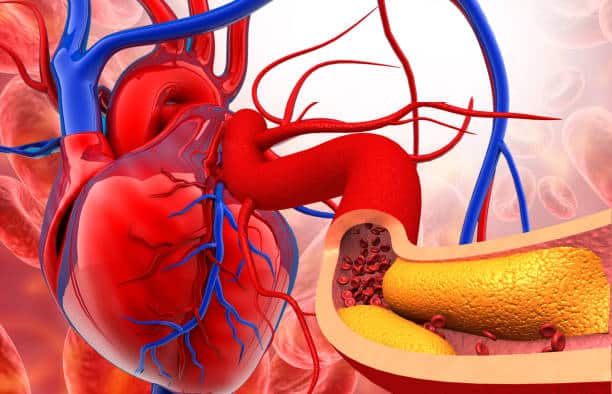
When it comes to your body, there are so many unknowns that you may believe came from out of the blue. The truth is, your body is always going to let you know whether it’s doing well or not. You just have to look for the signs and know what the signs mean.
If you’re feeling energized and your skin is glowing, it could be because you got a restful sleep the night before and are hydrated today. If you’re feeling sluggish, tired, or even in pain in some areas; your body is trying to tell you that it may need sleep, relief, or even a doctor's visit (especially if the problem is because of your arteries).
What Is Pulmonary Hypertension?
Your arteries are important and can be impacted by many things. One example is bad eating habits, which can cause your arteries and body to have serious complications.
One of those complications is called pulmonary hypertension.
Pulmonary hypertension is a specific type of high blood pressure. This type of high blood pressure affects the arteries, lungs, and right side of your heart. Pulmonary hypertension has the ability to worsen as time goes on and become life-threatening. Unfortunately, there is no cure for this condition.
Pulmonary hypertension occurs when the change in cells that line up with the pulmonary arteries causes the walls in the arteries to become thick.
In pulmonary arterial hypertension (a form of pulmonary hypertension), the blood vessels in your lungs are narrowed, blocked, and or destroyed. This slows or blocks the blood flow to the lungs and can lead to the rise of blood pressure in the arteries causing your heart to work three times as hard to pump blood through your lungs.
All this talk about your heart and blood vessels may sound like other diseases, like Transthyretin amyloidosis or ATTR-CM. ATTR occurs when your liver produces faulty transthyretin (TTR) proteins.
Clumps of these abnormal proteins (called fibrils) build up in your heart’s main pumping chamber. Your left ventricle becomes stiff and weak. This cardiomyopathy makes it harder for your heart to pump blood to your body. Heart failure can occur.
The main difference is that ATTR-CM is a protein disorder. In this condition, clumps of irregular proteins called fibrils build up in your heart instead of your arteries. These protein deposits stiffen your left ventricle, your heart’s main pumping chamber.
The Silent Symptoms
With pulmonary hypertension, you won’t notice the signs right away because of how slowly they develop. It could take years for you to notice any signs or symptoms of this illness and symptoms usually worsen as the disease progresses. Though you may not notice the symptoms at first, here are the usual symptoms of this disease:
1. Pain and pressure in your chest
2. Shortness of breath
3. Blue skin and lips
4. Swelling in the ankles, legs and abdomen
Other symptoms that may occur are:
5. Fainting spells and dizziness
6. Fatigue
7. Pounding heartbeat
8. Fast pulse
RELATED: 5 Foods That are Clogging Your Arteries
How This Could Lead To Drastic Health Changes
There are many future complications that can occur when pulmonary hypertension develops in the body. You can start to see bleeding in your lungs, and begin to cough up blood, which is a life-threatening change that can occur.
You can also experience a change in your heartbeat. With pulmonary hypertension, you can experience irregular heartbeats (arrhythmias), which can also be life-threatening. This disease can also cause the risk of blood clots. These blood clots will begin to form in the small arteries of your lungs.
Another drastic health change that can occur is heart failure and right-side heart enlargement. The heart's right lower chamber becomes enlarged and now has to pump harder than it normally does to move blood through the now blocked or narrowed pulmonary arteries.
This then leads to thickening of the walls in the heart and an enlarged right ventricle. These changes cause strain on the heart, which leads to failure.
RELATED: 11 Foods That Unclog Arteries–Fast!
What To Do When You Notice The Signs
When you notice that something isn’t right, the first thing you want to do is make notice of your symptoms. Be on the lookout to see if your symptoms are getting better or worsening.
If you notice a drastic change and your symptoms do not get better, seek a medical opinion as soon as possible. The faster you visit a medical professional, the lower the risk becomes of the disease worsening. It’s important to stay on top of your health and listen to your body, it could save your life.








